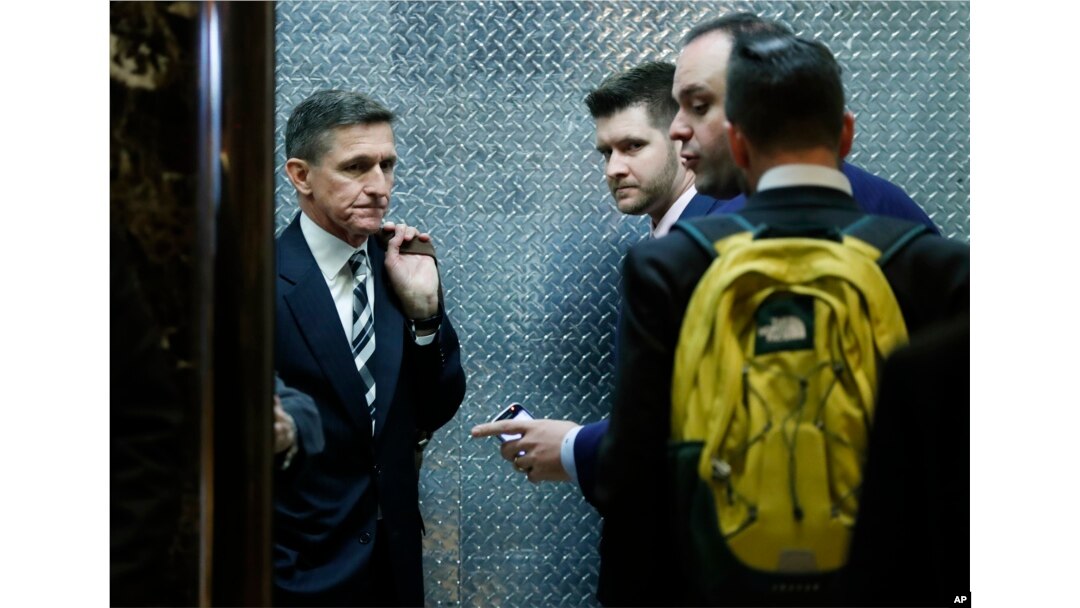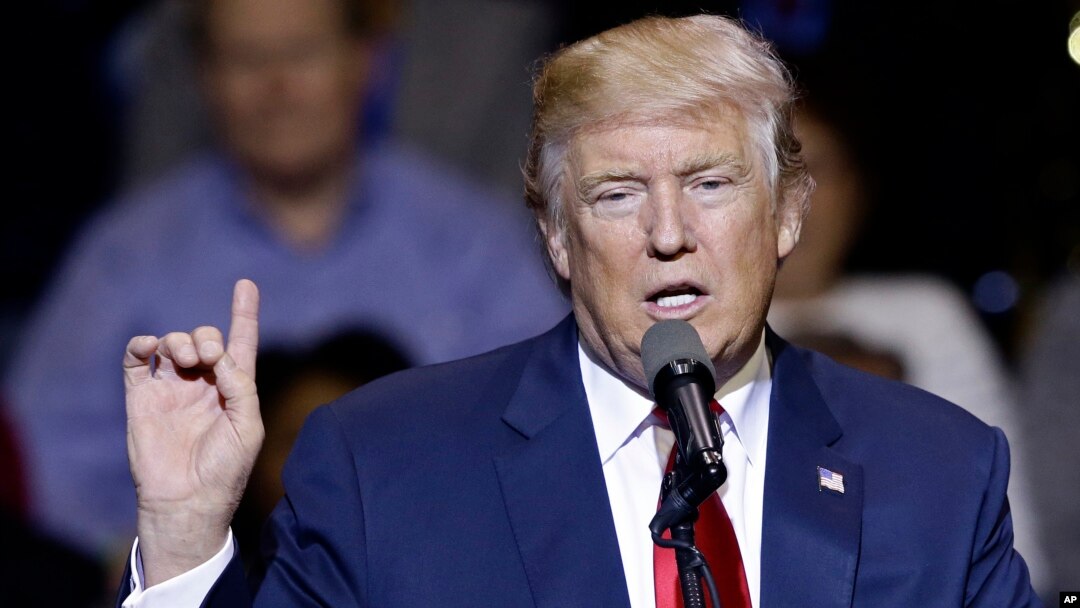U.S. President-elect Donald Trump returned Tuesday to his vision of a non-interventionist foreign policy for the United States, saying, as he did during his campaign, that he does not want American forces fighting "in areas that we shouldn't be fighting in."
At a "thank you" rally for his supporters in Fayetteville, North Carolina, Trump said his focus instead will be on defeating terrorists, including the Islamic State group.
"We will stop racing to topple foreign regimes that we know nothing about, that we shouldn't be involved with," Trump said, insisting the United States must end a "destructive cycle of intervention and chaos."
Fayetteville neighbors the U.S. Army's Fort Bragg, the world's largest military base, as well as the U.S. Air Force's Pope Field. Eight military installations dot the state.
Trump pledged to build up the military with the purpose of projecting strength, not aggression.
As a candidate, Trump frequently questioned whether NATO and other allies were pulling their weight. On Tuesday, he said he wanted to strengthen "old friendships" and seek new ones.
At the same rally, Trump formally announced his choice of retired Marine General James Mattis as his nominee for secretary of defense.
"Under his leadership, such an important position, we will rebuild our military and alliances, destroy terrorists, face our enemies head on and make America safe again," Trump said.
Michael O'Hanlon, a senior defense expert at the Brookings Institution, a Washington think tank, called Mattis "one of the best read, best informed and most experienced generals of his generation."
Mattis has served as the head of U.S. Central Command, which carries out U.S. operations in the Middle East, and the Supreme Allied Commander of NATO forces.
The retired general will need a congressional waiver in order to be confirmed as secretary of defense. Mattis otherwise would be ineligible to serve because of a law that requires a seven-year wait for former members of the military to serve in the post. He has been retired for less than four years.

FILE - Retired Lt. Gen Michael Flynn, left, his son Michael G. Flynn, second from left, and Boris Epshteyn, a spokesman for President-elect Donald Trump, third from left, board an elevator at Trump Tower in New York.
Pizzagate
Trump's transition team also cut ties Tuesday with Michael G. Flynn, the son of the president-elect's choice to be national security adviser, Michael T. Flynn.
The younger Flynn had an advisory role with his father and an official transition team email address, though the exact extent of his involvement with the incoming administration is unclear.
He came under intense criticism for sharing fake news stories, including spreading the so-called Pizzagate conspiracy that alleges a pizza place in Washington, D.C., is involved in a pedophilia ring with ties to former Secretary of State Hillary Clinton.
A gunman was arrested Sunday after firing a shot inside the restaurant. He'd told police he'd traveled from his home in North Carolina to "self-investigate" the conspiracy.
After the arrest, Flynn again tweeted about Pizzagate.
"Until #Pizzagate is proven to be false, it'll remain a story," he wrote.
The elder Flynn, a retired Army lieutenant general, has his own history of promoting false claims, including some involving Clinton.
Japanese investment announced
Earlier Tuesday, Trump appeared in the lobby of his New York office building with Masayoshi Son, the head of Japanese telecommunications giant SoftBank, who announced plans to invest $50 billion in the United States with a goal of creating 50,000 jobs.
SoftBank had established a fund in October, along with Saudi Arabia and others, to invest up to $100 billion in technology companies. The $50 billion initiative announced Monday would come from that money. No timetable was given for the investments focused on startup companies.
Trump claimed credit for Son's commitment, saying on Twitter it would not have happened had he not won last month's election.
SoftBank owns U.S. mobile carrier Sprint, which two years ago had a proposed merger with T-Mobile rejected by regulators on anti-trust grounds. Analysts believe such a merger would be easier under Trump, who is a proponent of removing regulations he says are killing businesses.
Softbank CEO Masayoshi Son speaks to the press after meeting with U.S. President-elect Donald Trump at Trump Tower in Manhattan, New York, Dec. 6, 2016.
Campaigned on jobs
Trump, in his unlikely march to the White House, had campaigned on bringing more jobs to America, particularly in manufacturing regions hit hard by the recession and globalization.
The SoftBank deal is the second that Trump has used to boast about keeping his promises to voters. Last week, he announced that the Carrier Manufacturing Corp. would keep 800 jobs in Indiana instead of outsourcing them to Mexico. Carrier still plans to outsource hundreds of jobs from another Indiana plant.
Trump also wrote on Twitter that he wants to terminate an order for a new Air Force One, the plane that flies U.S. presidents around the world. The government has contracted Boeing to construct at least two new planes, which would go into service in 2024. The total cost was initially expected to be about $3 billion.
Trump wrote that "the costs are out of control, more than $4 billion."
Boeing responded to Trump's criticism with a statement saying at this point in the process only a much smaller amount of money has been committed.
"We are currently under contract for $170 million to help determine the capabilities of these complex military aircraft that serves the unique requirements of the president of the United States," the aerospace giant's statement said.
"We look forward to working with the U.S. Air Force on subsequent phases of the program, allowing us to deliver the best planes for the president at the best value for the American taxpayer."


